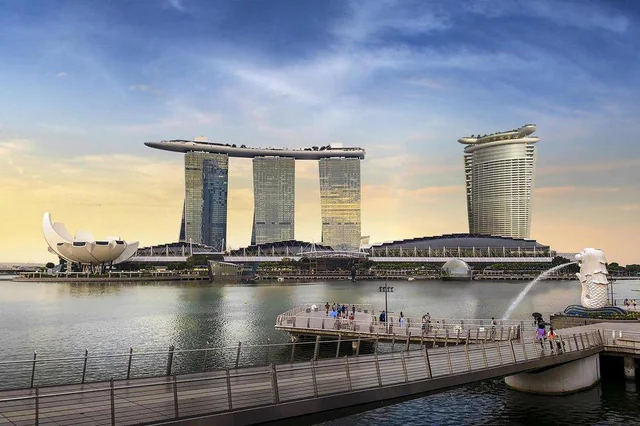The problem with Mainland Chinese restaurants in Singapore is the language barrier and lack of English, as a Non-Chinese Singaporean
I would like to preface that I am an Indian Muslim with an interest for different cuisines. I do like some halal Chinese restaurants, especially Halal Lanzhou beef noodles at Tongue Tip, and I had the opportunity to try the only pork-free HDL in Indonesia. I would love to try more Northern Chinese cuisines if there are halal options, but I don't mind the vast majority of them not being Halal. This isn't meant to be political, but rather a personal concern. This does not refer to larger chains like HDL, Luckin, Chagee but rather the smaller restaurants you see popping up here and there, like in Bugis or Clementi where there's a growing Mainland Chinese population. But I feel that the brooding issue with the PRC restaurants is not bcos they're everywhere or their effects on rentals, but bcos they primarily use Chinese in their menus and marketing, with minimal English. Yes, they're a Chinese business, and Singapore is Chinese majority. But having only the Chinese language means you are excluding non-Chinese people and even some Chinese Singaporeans who struggle with their Mother Tongue. This can also affect Non-Chinese Grabfood/Foodpanda deliverypeople who might be unable to read Chinese place names. English is a common language here, and I feel the use of Chinese and the lack of English makes it seem that they do not really want to expand their business' clientele outside of the PRC immigrant population, and maybe some of the local Chinese. Even if they include English, the English text is either really tiny, or only half the information (especially in ads) are translated. In the menus, the translations can also be terrible. I do not know why the Chinese bosses are reluctant to put English signage. Do they think everyone speaks Chinese? Or do they only want the mainland immigrants as their clientele? When McDonalds first came to Singapore, they had Chinese on the menu since there was still a large chunk of the population that still couldn't speak English, to make non-English speakers feel welcome. Even if I wouldn't patronise since they're not halal anyway, what if there's someone who doesn't speak Chinese but are interested in trying these Chinese places? Having no English makes this feel unwelcoming to some in Singapore, and don't forget about the staff who also struggle with English! Addendum: Please do not use this as an excuse to be xenophobic.
What are some things in Singapore that feel truly local, like THIS IS SINGAPORE
I’ve been spending more time in Singapore and I’m curious like what are the little things or places that make you think, “yeah, this is the real Singapore”? Like a quiet spot, a food stall, or just something everyday that tourists usually miss. Would love to hear what makes it feel like home for you.
AnythingWhatever👍😢 4
Fallen tree after the big rain
Pray for our fallen comrade. If one tree cost $10k, this is $10k gone from our NEA pocket. If you don’t believe this amount, you try to use your car and bang down the tree, see how much the govt will charge you.
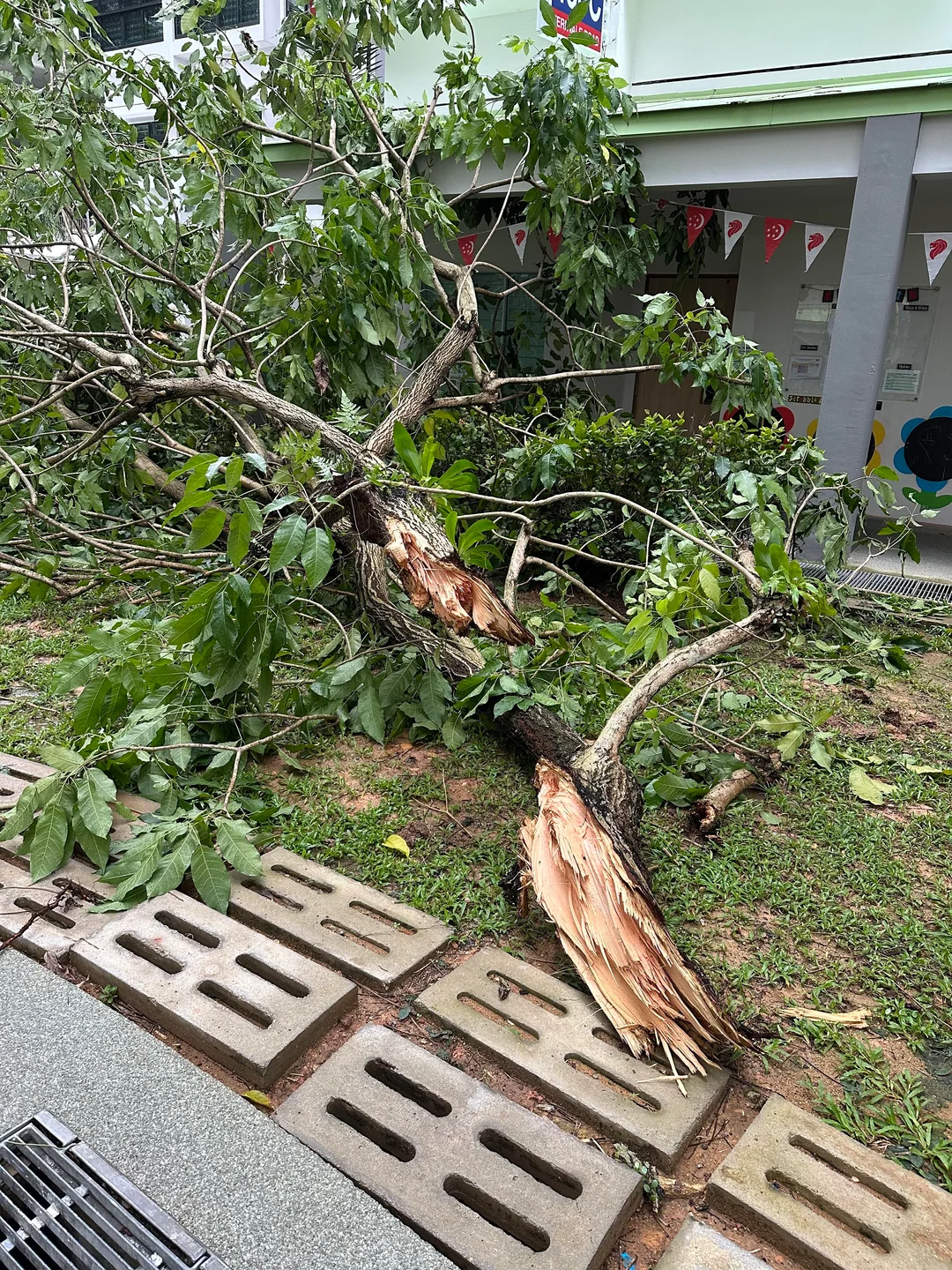

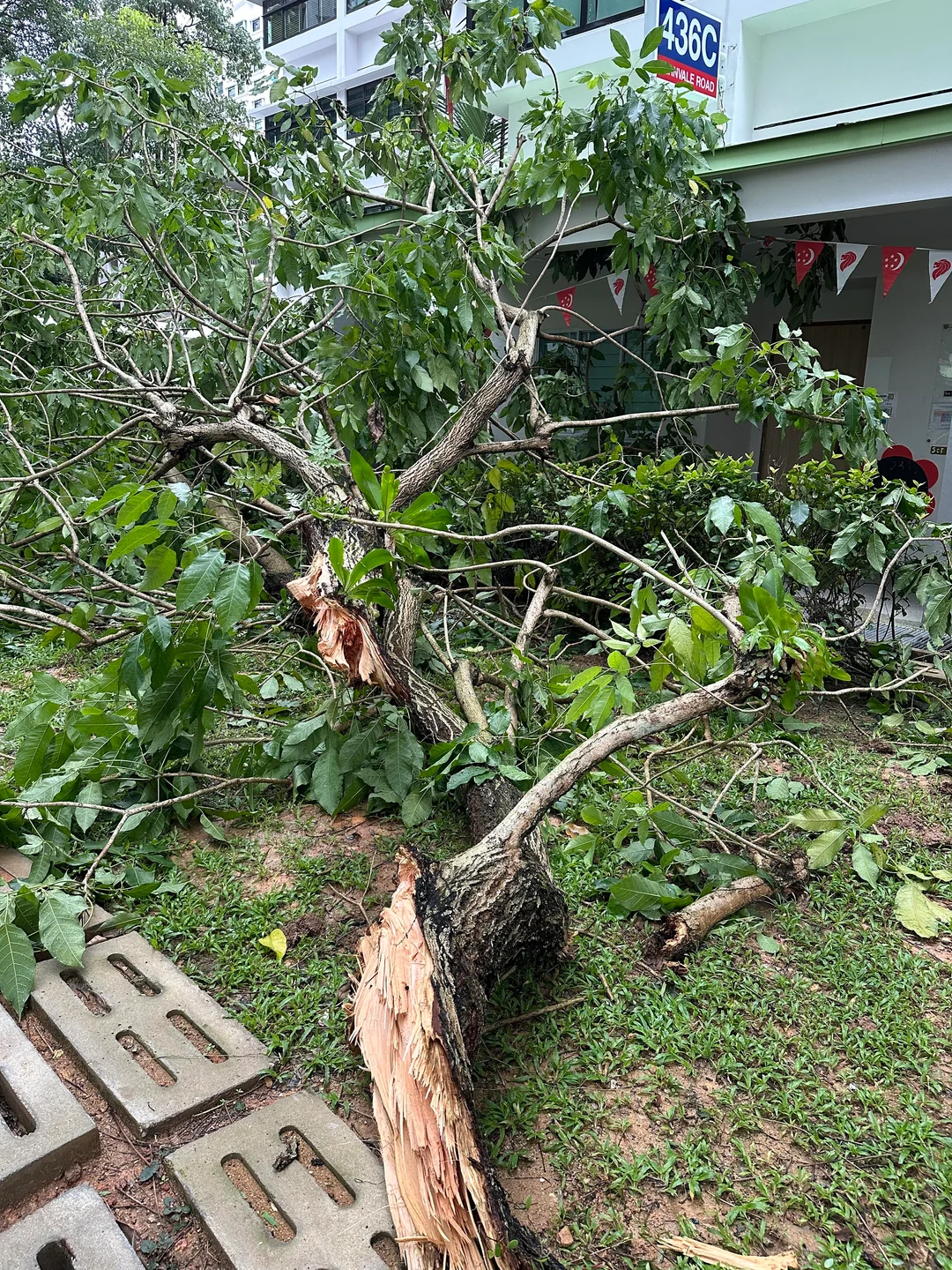

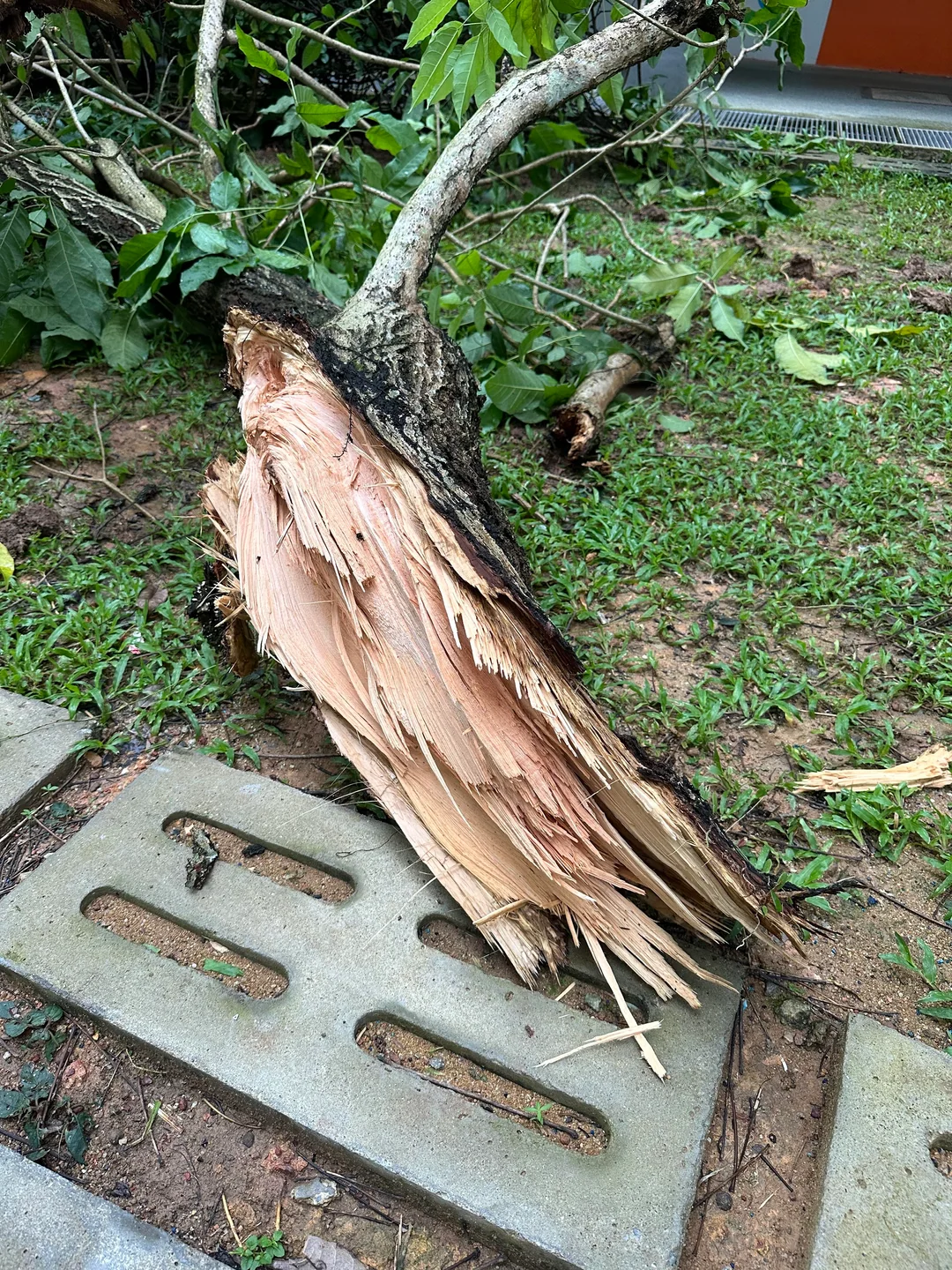

Would the average Singaporean Chinese Mandarin really be this bad?
Hey all I have a serious question that I am trying to rack my brain around. My friend is in the third stage of an interview with a tech company. The job is 90% English speaking. However sometimes they have to deal with clients/customers based in China. Therefore this stage is a mock presentation in mandarin. The brief says they don’t expect native speaker mandarin, just enough to present to the client, persuade them, assure them and answer their questions. 30 minutes. My friend is saying they are 100% sure they will fail even tho they are Chinese Singaporean. Here is what I struggle to understand. I have a non English mother tongue which I only learnt once a week on Saturdays + from speaking with my family at home. I would fail this kind of interview in my mother tongue, but when I look at my friends experience as a Singaporean Chinese: - 5 days a week of Chinese language lessons exposure throughout every year of schooling in Singapore. - Regular interactions with people who can’t speak English in Singapore only mandarin. - Their family is Chinese speaking. When I go to their events they don’t even speak English around me (understand this is not the average Singapore Chinese experience but yeah). - Chinese text seen on a regular basis around Singapore. - Chinese media is quite common and available. For example hearing it on the radio in a random grab ride. If I had this kind of exposure to my mother tongue I feel like i would be a black belt master in it. So what is the challenge Singaporeans feel about speaking mandarin at this level? Help me understand.
AnythingWhatever👍😲 4
Smoker in front of school. What to do?
While picking up my kids from primary school, I witness an argument between a lady (20+) and an uncle (70+). The uncle was smoking near a grey bin, outside of the school compound. The lady told the uncle not to smoke citing a sign on the school fence that smoking is not allowed within 5m of school compound. Uncle retorted aggressively that the lady should mind her own business, he is smoking outside the school and is under the not sheltered area. Lady insisted that it is within 5m of school compound. Uncle was agitated, aggressive and dared the lady to call the police. There were quite a few bystanders, mostly waiting to pick up their kids. Noone intervened, not sure if it escalated after I left. My kids asked me what was the commotion about which prompted me to think about my own inactions. I feel guilty for not stepping up for the lady. I didn't have a ruler and not too good at estimating either. Uncle could be beyond the 5m of school compound, which means smoking there is not wrong. Lady maybe had good intentions since many students will be coming out to the area. Asking for opinions on what will you all do in this situation, especially since uncle gave the entitled, offensive, wanna fight kinda vibes.
AnythingWhatever👍😲 3
Found a whole flock of these birds in Chua Chu Kang. What are these?
They are occupying 5 trees along the road. Are they migratory birds?
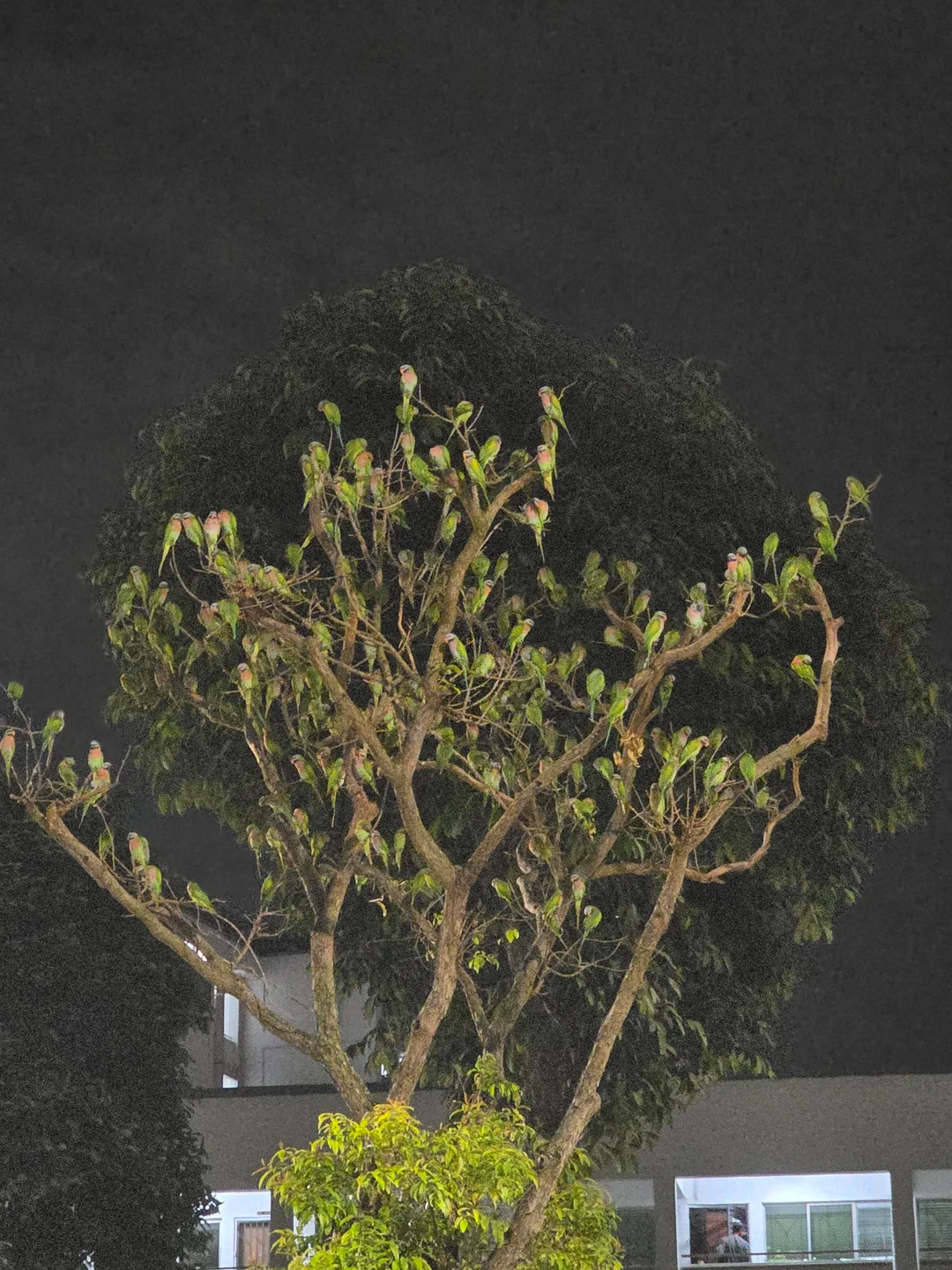

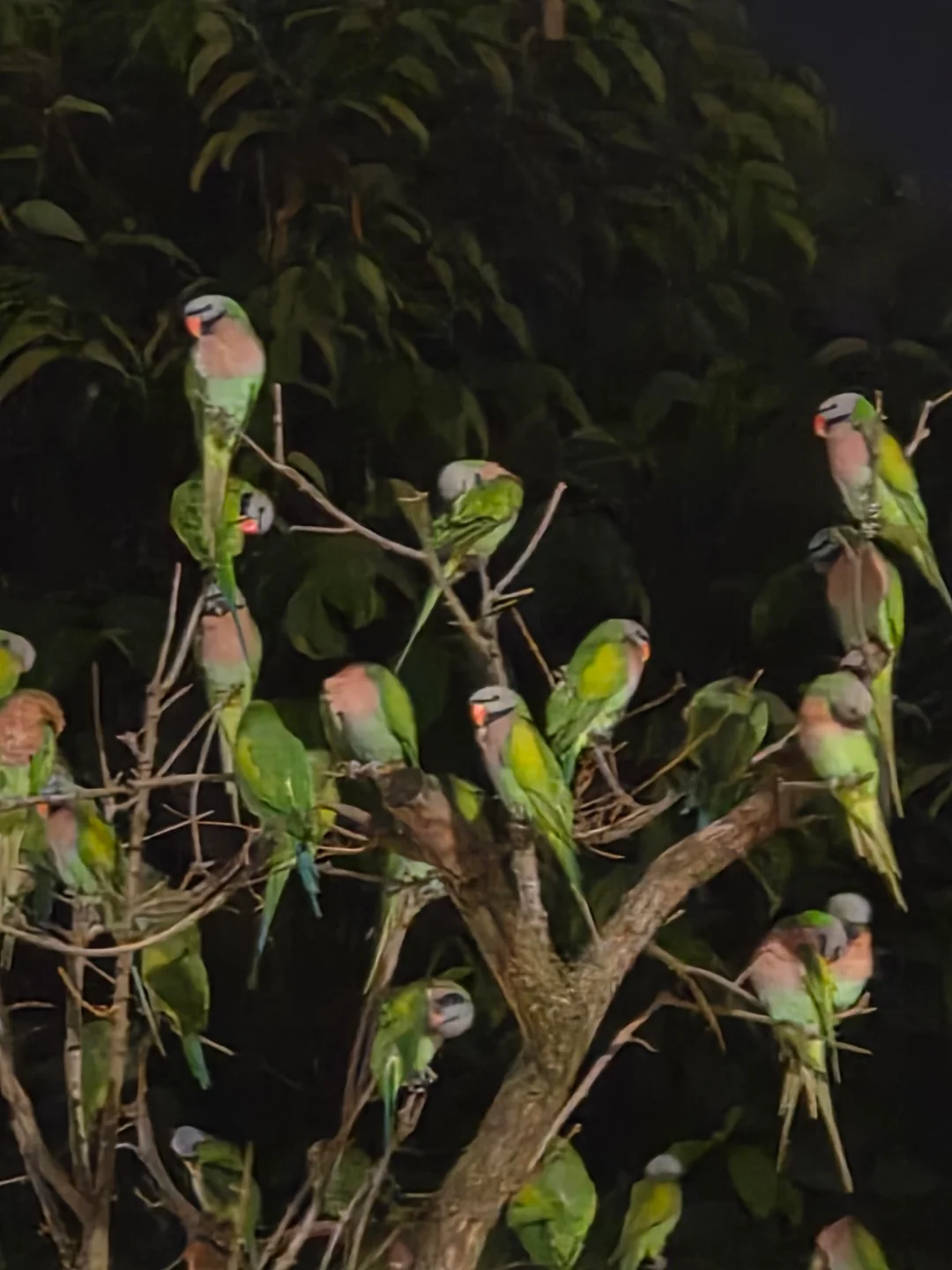

AnythingWhatever👍😡 5
Frustrated with new citizens purchasing HDBs when they have no intention of living in SG
Frustrated with new citizens purchasing HDBs when they have no intention of living in SG I recently found out that my Malaysian colleague is trying for BTO. The couple are Malaysians — the male partner recently converted to Singaporean (accepted prior to recent election), and the female remains a PR — are applying for a BTO flat. What frustrates me is that they have openly said they don’t plan to live in Singapore long-term. They’re only buying the flat for “investment” or as a backup plan. The male didn’t serve National Service because he became a citizen as an adult. Yet, by simply converting, he now has access to heavily subsidised public housing — and the PR partner gets to ride on that privilege too. To me, this exposes a serious flaw in the current policy. BTO flats are meant to help Singaporean families build stable homes. But cases like this suggest that even new citizens with shallow roots — and zero NS contribution — can access the same BTO supply and subsidies as lifelong Singaporeans. Key Policy Gaps: 1. No minimum citizenship duration before a new SC can apply for BTO with a PR spouse. 2. No requirement for NS (or equivalent national contribution) from adult male new citizens. 3. No check on intent to stay — buyers can qualify for BTO even if they clearly view it as an investment vehicle. Meanwhile, many Singaporeans — who’ve served NS, paid taxes all their lives, and genuinely plan to raise families here — are still waiting years for a BTO or are priced out of the resale market. I’m not against immigration or new citizens — but access to subsidised public housing should reflect commitment, sacrifice, and intent to settle, not just a passport conversion. There’s a growing sense that some are exploiting the system while true-blue citizens are left behind. What are your thoughts on new citizen purchasing HDBs?
interesting👍 3
Singapore's first batch of National Servicemen leave Bedok Camp upon completing their two years of service in August 1969
Singapore's first batch of National Servicemen leave Bedok Camp upon completing their two years of service in August 1969. The first people to say "ROD Loh!" ORD used to be called ROD (Run Out Date) Credit: Photonico
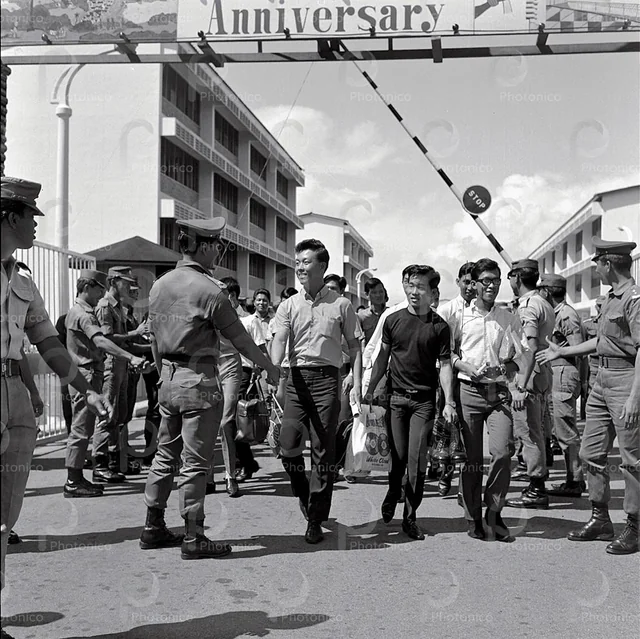

interesting👍😲 4
Singapore seen from space at night
Reposted by US Embassy Malaysia. NASA astronaut took a photo of Singapore from the ISS at night. Tiny island. Home of world best airport, 100% safe tap water, functioning traffic lights, sheltered walkways, efficient public service. Powered by Singaporeans and foreigners.


